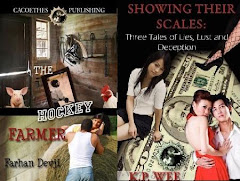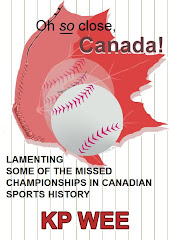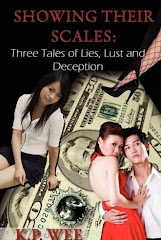Holy cow. Charles just wrote a long passage criticizing me on grammar, and ripped me about my A-Rod comments. I have no comeback to his rants on grammar. None at all. I'm having a headache just looking at it.
http://bleacherreport.com/articles/54119-a-rod-continues-homer-binge-in-meaningless-situations
by charles
Uh, yeah, I haven't a doubt you teach grammar DO. I know the "rules" and was actually poking fun at myself for offering corrections in my initial post, by citing a more traditionally correct yet less often employed grammatical construction.
Below is what some "expert" wrote:
Than I versus Than Me.
Than, as used in comparatives, has traditionally been considered a conjunction; as such, if you're comparing subjects, the pronouns after than should take the "subjective case." In other words, "He's taller than I," not "He's taller than me"; "She's smarter than he," not "She's smarter than him." If, on the other hand, you're comparing direct or indirect objects, the pronouns should be objective: "I've never worked with a more difficult client than him."
There are some advantages to this traditional state of affairs. If you observe this distinction, you can be more precise in some comparisons. Consider these two sentences:
* He has more friends than I. (His total number of friends is higher than my total number of friends.) * He has more friends than me. (I'm not his only friend; he has others.)
The problem, though, is that in all but the most formal contexts, "than I" sounds stuffy, even unidiomatic. Most people, in most contexts, treat than as a preposition, and put all following pronouns in the objective case, whether the things being compared are subjects or objects. "He's taller than me" sounds more natural to most native English speakers.
This isn't a recent development: people have been treating than as a preposition for centuries. Consider the following from big-name English and American writers:
* Matthew Prior, Better Answer: "For thou art a girl as much brighter than her,/ As he was a poet sublimer than me." * Samuel Richardson's Clarissa, 1.10.58, "I am fitter for this world than you, you for the next than me." * Lord Byron's letter of 2 November 1804, "Lord Delawarr is considerably younger than me." * Robert Southey, Well of St. Keyne, 51: "She had been wiser than me,/ For she took a bottle to Church." * William Faulkner's Reivers, 4.82: "Let Lucius get out . . . He's younger than me and stouter too for his size."
So what should you do? I don't have a good answer, other than the most general advice possible: try to size up your audience, and figure out whether they're likely to be happier with the traditional or the familiar usage. [Entry added 3 Jan. 2005.]
Today's KP links:
Tim Wakefield's career
A-Rod 0 for 10 (with bashing from "Charles")
"Showing Their Scales" and "The Hockey Farmer"
We are pleased to introduce the works of local B.C. authors KP Wee and Farhan Devji to you:
"Showing Their Scales" contains three tales of lies, lust, and deception. These are short novels which deal with betrayal and revenge, with three main male characters and how they end up hurting the women in their lives.
**Catch an episode of BlogTalkRadio here with KP's interview on his books, recorded Dec 29, 2008.**
"The Hockey Farmer" is a story about Logan Watt, who hails from Cochrane, Alberta, and has to decide whether to rehabilitate the legendary family farm or pursue an unlikely career in professional hockey. The story also shifts to Vancouver and contains numerous Vancouver Canucks references.
Help support a pair of B.C. authors by picking up your own copies today!
-- "The Hockey Farmer" can be purchased here,
while "Showing Their Scales" can be bought here. --
"Showing Their Scales" contains three tales of lies, lust, and deception. These are short novels which deal with betrayal and revenge, with three main male characters and how they end up hurting the women in their lives.
**Catch an episode of BlogTalkRadio here with KP's interview on his books, recorded Dec 29, 2008.**
"The Hockey Farmer" is a story about Logan Watt, who hails from Cochrane, Alberta, and has to decide whether to rehabilitate the legendary family farm or pursue an unlikely career in professional hockey. The story also shifts to Vancouver and contains numerous Vancouver Canucks references.
Help support a pair of B.C. authors by picking up your own copies today!
-- "The Hockey Farmer" can be purchased here,
while "Showing Their Scales" can be bought here. --
The Hockey Farmer / Showing Their Scales

Subscribe to:
Post Comments (Atom)
Brief Resume Highlights
Writing Experience
- Bleacher Report: contribute articles on the Vancouver Canucks, Boston sports, hockey, and baseball at least three times a week (2007-Present); edit sports-related articles from other posters (2008-Present)
- UCL: developed Career Planning curriculum (2007); consulted on for other curricula issues (2005-Present)
- Consumer Research: submitted unsolicited proposals for improvements on company operations (2005)
- B.U.D. College: developed Grammar curriculum consisting of five levels (2004); edited curricula for other courses (2004)
- KGIC: developed Career Planning curriculum proposal for Surrey campus (2004)
Writing Accomplishments
- Named Bleacher Report Bruins Community Leader (2008)
- Bleacher Report: contribute articles on the Vancouver Canucks, Boston sports, hockey, and baseball at least three times a week (2007-Present); edit sports-related articles from other posters (2008-Present)
- UCL: developed Career Planning curriculum (2007); consulted on for other curricula issues (2005-Present)
- Consumer Research: submitted unsolicited proposals for improvements on company operations (2005)
- B.U.D. College: developed Grammar curriculum consisting of five levels (2004); edited curricula for other courses (2004)
- KGIC: developed Career Planning curriculum proposal for Surrey campus (2004)
Writing Accomplishments
- Named Bleacher Report Bruins Community Leader (2008)




No comments:
Post a Comment